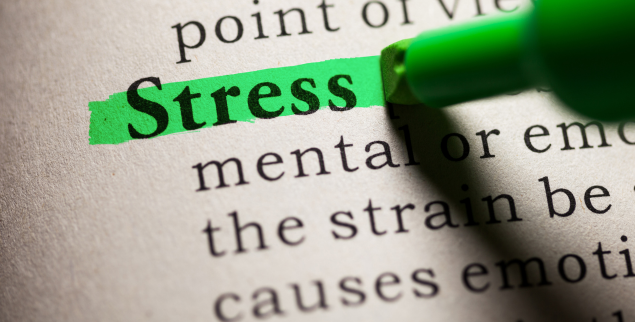Ways To Lower Stress
-
November 6, 2024
- Posted by: Nina Rand

How to Cultivate a Healthy Stress Response
& Support Your Heart Health
Stress is a fact of life. From emotional pressures to physical demands and even biochemical shifts, stress comes in many forms. And each one takes a toll on our bodies—especially our hearts.
While stress is unavoidable, there’s good news: you can build a healthy stress response. Doing so means not only understanding how stress affects you but also finding ways to manage it so it doesn’t hurt your heart health or cause other systems in your body to go haywire.

What stress is and how it works.
First, let’s define stress to better understand it. In simple terms, stress is the body’s natural response to any challenge or demand.
When you encounter a stressful situation, your brain releases the hormone cortisol. Cortisol is essential in small doses, helping you respond to immediate threats or challenges. But when you’re constantly stressed, your cortisol levels stay high, which can strain your body and affect your heart.
Have you ever noticed that your jaw is tight when you’re stressed? Or you toss and turn all night? Or your heart starts racing?
Stress can also have physical effects on your body. That’s why learning how to identify and respond to stress can make a significant difference in your health.
So, without further ado, let’s talk about practical ways you can start managing stress.

The power of small, consistent practices.
Managing stress is not about eliminating it completely (if only!). Instead, it’s about small, consistent actions that build resilience over time.
You’ve probably heard the saying “being healthy is hard, but being sick is harder.”
Yes, it’s hard to choose healthy habits. Yes, it’s hard to stay consistent. And, yes, it’s hard to choose a workout over Netflix and the couch at the end of a long day.
That’s why we like to focus on small, consistent habits that build on one another to soon become like second-nature and turn you into a healthy habit machine.
Even if you don’t consider yourself to be someone in need of a healthier stress response, incorporating — or even just being mindful of — some of these habits can still make a difference in your reaction to stress and your overall health.
Think of these small, consistent habits as “stress training.” Just like regular physical exercise strengthens your muscles, regularly practicing stress management techniques strengthens your mind’s ability to handle life’s pressures.
Here are some small habits you can implement in your life to cultivate a healthy stress response and give your heart health some love.
Lean on your support system.
Having a support system of friends, family, or even a trusted colleague can be a game-changer for stress management.
Studies show that meaningful social connections actually reduce levels of cortisol and lower blood pressure. And in this increasingly digital world where loneliness often takes hold, having a network to turn to can make a significant positive impact on your health.
Our recommendation? Make time for regular check-ins with a friend, spouse, coworker, or family member. Even brief moments of connection, like a weekly call or a quick coffee, help reinforce that you’re not facing stress alone.
As a bonus health boost, try adding in the 20-second hug method.
Did you know that hugging a loved one for 20 seconds straight releases the love hormone, oxytocin?
Try this with your spouse in the morning before work. It will not only make you feel good, but it will force you to slow down — even if just for 20 seconds — reminding you that you don’t always need to be in a rush.
Embrace positive affirmations.
In moments of stress, our minds can easily spiral into negative thoughts. It might sound a bit ‘woo,’ but by focusing on positive affirmations, you can help yourself manage stress more effectively.
Positive self-talk activates the brain’s reward center, which can reduce stress and anxiety, improve confidence, and even increase motivation.
The more you practice these statements, the more they become second nature, helping you tackle stress with confidence.
Try using affirmations that resonate with you, like “I am in control of my reactions,” or “This situation is temporary.” Start by making an affirmation that resonates with you your phone background or writing it on your mirror where you’ll see it every day. Repeat it often to yourself when you feel stress rising.
Try relaxation techniques like meditation or deep breathing.
Meditation, mindfulness, and deep breathing are powerful tools for calming the mind and body. These techniques counteract the fight-or-flight mode triggered by stress.
Set aside 5–10 minutes each day for meditation and deep breathing. Focus on slow, deep breaths, aiming for a five-second inhale and a five-second exhale.
This can be done anytime, anywhere — even while remaining active on a walk — and is a great reset in moments of stress.
Prioritize quality sleep.
Stress and sleep are closely linked. Stress can interfere with sleep, and poor sleep can, in turn, increase stress levels.
When you don’t get enough restorative sleep, your body has a harder time regulating cortisol levels, which can lead to increased inflammation (a known risk factor for heart disease).
Prioritizing sleep not only helps you feel more equipped to handle stress but also supports your heart by giving your body the time it needs to relax and restore.

Schedule a consultation or your annual check-up with your cardiologist.
The easiest change you can make right now to support your heart health is to visit your cardiologist for an annual check-up.
When you come to see us, we will perform a thorough consultation and educate you on how to best manage your stress levels and support your heart health.
Our team wholeheartedly believes in the power of education as a means to support heart health. As heart care experts, we help our patients work towards improved cardiovascular health and quality of life. Truly, personalized care is the heart of our practice.
Schedule your consultation or check-up online or call us at 281-358-1950.
